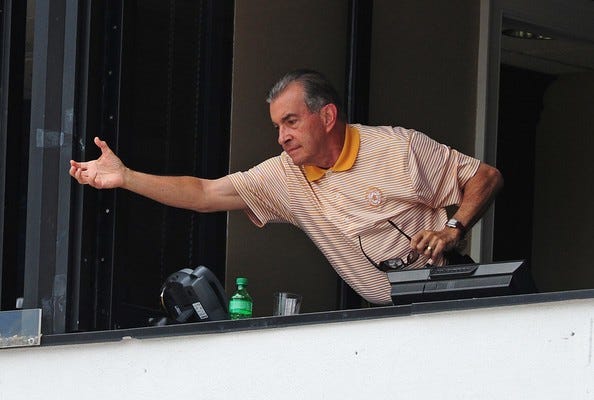The School Teacher

WASHINGTON -- There is still a bit of eighth grade school teacher in John Schuerholz. You can see it in the way he talks, the way he moves, the way he makes eye contact with everyone in the crowd, glancing from one person to another, reading their faces as if asking himself, "Do they understand EXACTLY what I am saying?"
Clarity. This was the great gift …


